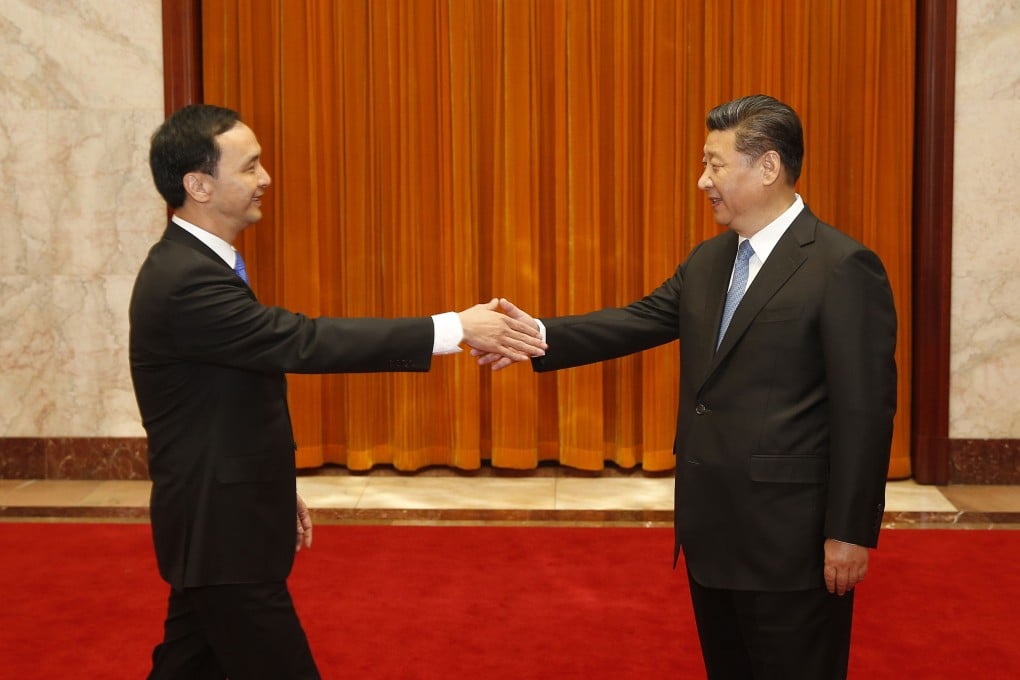Opinion | A new framework for relations across the Taiwan Strait is vital for peace
Hu Shuli says Xi's call underlines Beijing's sincerity to get to grips with this tricky relationship, and Taiwan should respond in kind

Relations across the Taiwan Strait are at a turning point. At the meeting this month between Communist Party general secretary Xi Jinping and visiting Kuomintang chairman Eric Chu, Xi proposed five guidelines for strengthening ties that clearly reflected Beijing's strategic thinking on the matter. In particular, the call for a framework to "systematise" the peaceful development of cross-strait ties is vital, as it will act as an anchor in stormy weather.
Though the outlook has been fair in recent years, a number of uncertainties lie ahead. Taiwan will hold its general election early next year, and many fear that any change in the ruling party will set back cross-strait relations. In this context, Xi's pledge that no one should be allowed to threaten the steady progress of ties was notable.
Soon after Xi spoke, the head of the State Council's Taiwan Affairs Office said the conversation for setting up a strategic framework could extend beyond the two parties to include other sectors of society, underlining the importance Beijing has placed on this effort.
History demonstrates the urgent need for such a framework. During the years when Taiwan was led by Lee Teng-hui and Chen Shui-bian, political tensions reached a high on more than a few occasions. Fortunately, a series of groundbreaking meetings between Hu Jintao and Lien Chan in 2005 put relations on a more even keel.
The Kuomintang's recapture of government power in 2008 further ushered in several breakthroughs. Talks were restarted between the Association for Relations Across the Taiwan Strait and the Straits Exchange Foundation, facilitating the inking of 21 agreements of cooperation in areas such as trade, freight, finance, the law and medicine. Direct flights have resumed, and more mainland Chinese now travel to Taiwan for a holiday.
Nevertheless, seven years after rapprochement first began, the low-hanging fruit have all been picked. Increasingly, both sides now have to confront the difficult questions in their relationship; there's no better time to chart a new direction for the future. In this regard, Xi's overture is timely, and underlines Beijing's sincerity to build a common future of mutual benefit. All in Taiwan have good reason to welcome it.
